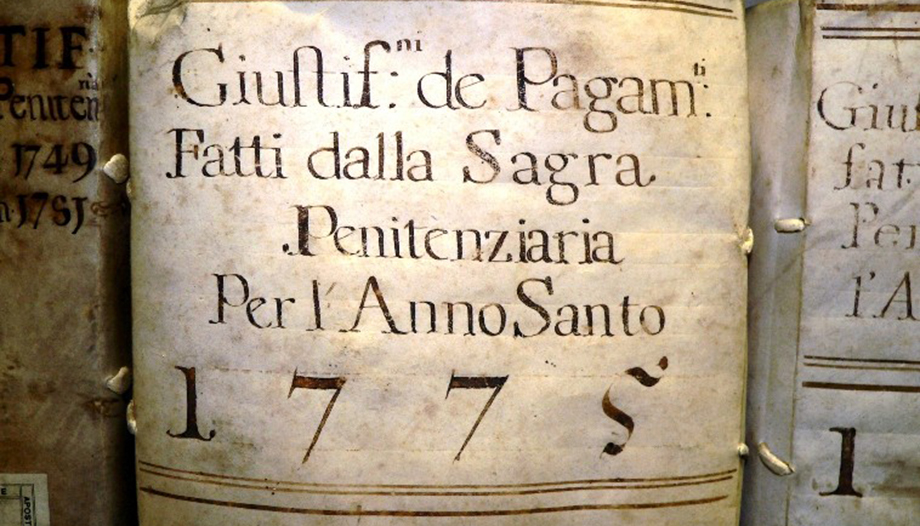Forgiveness of sins, mercy, is at the heart of the message that Jesus gives in the Gospel, as is the ability to forgive them. So - one might ask - when a sin is committed, is not the absolution given by a priest sufficient, what is the Apostolic Penitentiary for?
The Apostolic Penitentiary is the Supreme Tribunal of the Catholic Church and is responsible for granting pardon to penitents in particular cases, that is, to those who repent. Pope Francis likes to define it as "mercy court".
It must not be forgotten that it is God who forgives and through the sacrament of reconciliation the penitent has the assurance that he has been absolved. In the meantime, there are particularly serious cases in which the Sacrament of Reconciliation is not sufficient.
We are talking about extreme cases, such as sacrilegesblack masses, profanation of the Holy Eucharist, when there is a violation of the confidentiality of confession; in the case of a suspended priest a divinis because he adhered to a movement or a cult distant from the Church; or of a person who renounced his Catholic faith and asks to be readmitted.
Pope Francis, on September 21, 2013 appointed Cardinal Mauro Piacenza as Major Penitentiary of this millenary institution, and its headquarters in Rome is located in a building dating back to the late fifteenth century, in Piazza della Cancelleria, a stone's throw from "Campo de' Fiori".
The work of the Apostolic Penitentiary
Cardinal Piacenza, interviewed by Omnes about this tribunal of the Church, recalled that "the Penitentiary is for sinners - and all of us are sinners - regeneration", and considered that one can have a meaningful image of this institution "looking at the representation of the Sacred Heart of Jesus with open arms and with the phrase: 'Come to me all you who are burdened and tired'".
The Apostolic Penitentiary studies difficult cases, looking for a way out, and can grant dispensations and indulgences reserved to the Pontiff, or in the so-called internal forum cases (of conscience), it can grant absolution, dispensations, etc.
There is also the dispensation from vows or exclaustration requested by a nun, or the request to leave an institute of pontifical law, among many other situations.
Without forgetting the actions of "censure", i.e. excommunication, interdiction, suspension, suspension, etc. a divinis and in some very serious cases even the resignation from the clerical state.
The Penitentiary must also provide that in the four papal basilicas of Rome (San Pietro, San Giovanni in Laterano, San Paolo, and Santa Maria Maggiore) there be a sufficient number of penitentiaries with the proper faculties, as well as the granting of indulgences.
Cardinal Piacenza, in charge of the highest of the three existing tribunals in the Church, explained to Omnes the utmost importance of this institution, because "the mission of the Church in the world is the prolongation of the very mission of Jesus: when John the Baptist saw Jesus on the banks of the Jordan, he said to the crowd: 'Behold the Lamb of God, who takes away the sin of the world. What other mission could the Church have? Well, the Apostolic Penitentiary is at the total service of this mandate. Well, the Apostolic Penitentiary is at the total service of this mandate. Could anything be more important than this?".
Bishop Piacenza adds that the relationship between penance and mercy "could not be closer". For "the truly repentant person has the right to that mercy which the merciful Lord brings down upon him, ordinarily as a regenerating dew through the sacrament of Reconciliation".
The Cardinal concluded by pointing out that "the Penitentiary is the custodian of the most intimate secrets of the human soul, which is why everything is welcome here: listening, consolation, understanding, discretion, silence, encouragement and then interior celebration, interior joy. A reality that is breathed in the papers of the Apostolic Penitentiary is the reality of the communion of saints".
Shared location and competencies
In the same "Palazzo della Cancelleria" are located the Apostolic Signatura, the highest tribunal on canon law, and the Roman RotaThe court of cassation of various offenses, on jurisprudence, and also known in cases of appeal in matrimonial nullity (wrongly called divorce).
Cases of sexual abuse of minors by clerics or persons connected with the Church, on the other hand, go directly to the former Holy Office, now called the Dicastery for the Doctrine of the Faith, so that the 'bad apples' are removed and punished as quickly as possible.
The powers of the Penitentiary are as follows in articles 190-193 of the Apostolic Constitution Praedicate evangelium of Pope Francis (2022)












